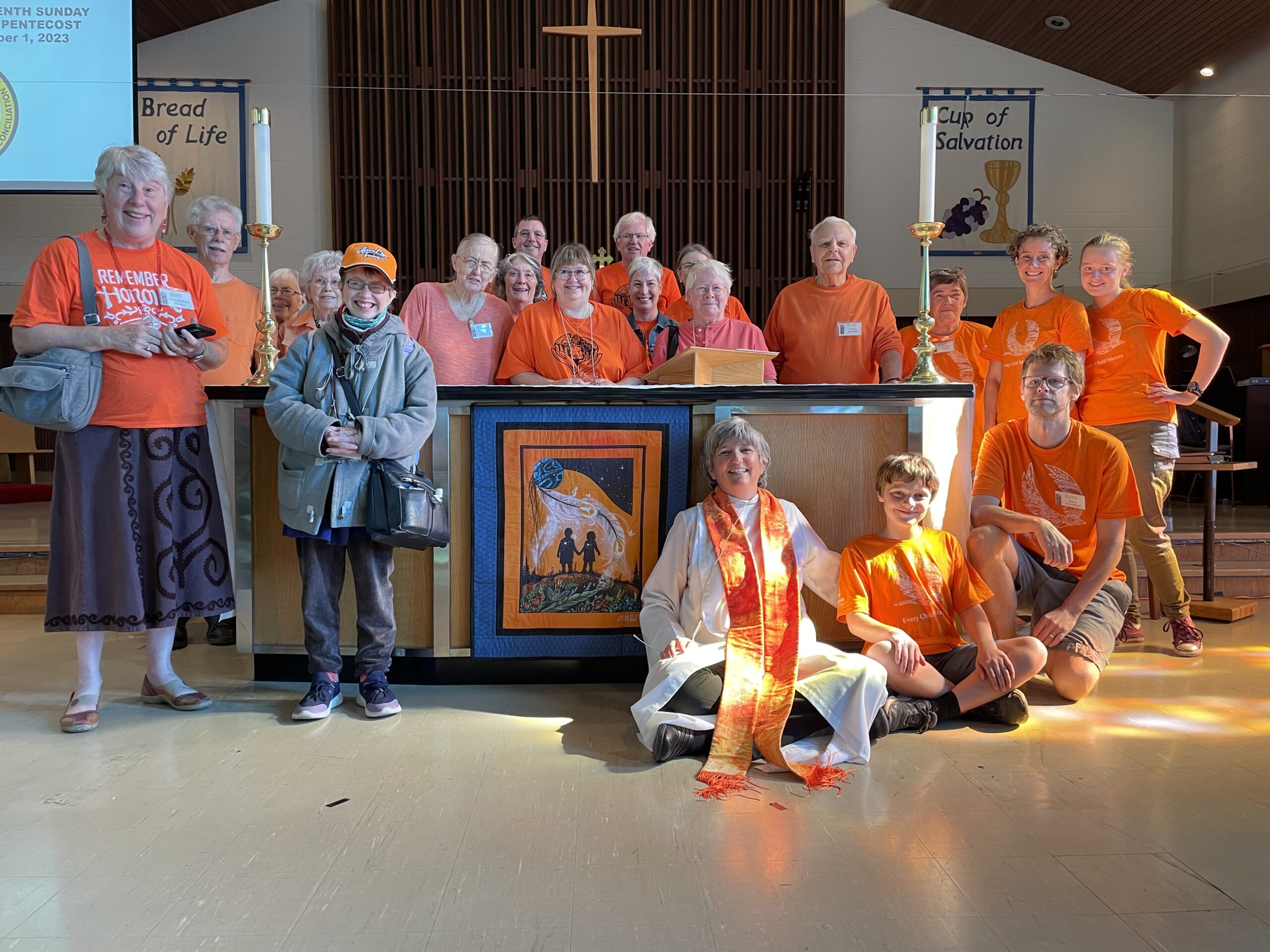When Church of the Ascension in Ottawa commemorated the National Day for Truth and Reconciliation and Orange Shirt Day on Sunday, Oct. 1, we also honoured the thousands of Indigenous women and girls and two-spirited people who have gone missing or who have been murdered. As part of our service, we were each invited to hang small red dresses on our prayer net with words of prayer and hope.
Red dresses have come to symbolize this national critical issue of missing and murdered Indigenous Women and Girls (MMIWG) and 2SLGBTQQIA (Two-spirit, Lesbian, Gay, Bisexual, Transgender, Queer, Questioning, Intersex and Asexual) people.
The symbol of the red dress originates in Métis artist Jaime Black’s art installation the REDress Project, in which red dresses of all sizes and designs hang empty on display. The artist sees the installation as “A platform for voices that are often silenced.” She explains on her website that she hopes the red dresses “draw attention to the gendered and racialized nature of violent crimes against [Indigenous] women and to evoke a presence through the marking of absence.”
The National Arts Centre honoured the lives of MMIWG2S+ on May 5, 2021 by hanging red dresses in its lobby. https://nac-cna.ca/en/stories/story/honouring-mmiwg2s-red-dress-day
In 2019, the National Inquiry into Missing and Murdered Indigenous Women and Girls, released its final report Reclaiming Power and Place. It provides contexts to help our understanding of the colonial violence against First Nations, Inuit and Métis women, girls and Two-Spirit+ people. The report contains 231 Calls for Justice for all levels of government, industry, institutions, services and all Canadians to recognize and take action to stop the violence and address root causes. Among the Calls for Justice, #15.2 calls on all Canadians to: Decolonize by learning the true history of Canada and Indigenous history in your local area. Learn about and celebrate Indigenous Peoples’ history, cultures, pride, and diversity, acknowledging the land you live on and its importance to local Indigenous communities, both historically and today.
So many cases of missing and murdered Indigenous women and girls remain unsolved. On Sept. 5, the Most Rev. Chris Harper, National Indigenous Anglican Bishop, and the Rev. Canon Dr. Murray Still, co-chair of the Anglican Council of Indigenous Peoples (ACIP), joined leaders of three other major church denominations to visit Camp Morgan, at the Brady Landfill outside Winnipeg. These faith leaders stood in solidarity with those calling for justice and an end to the violence against Indigenous women, children, and Two-Spirit people and for the landfill to be searched for the remains of Indigenous women.
The Rev. Paul Johnson, dean of the Diocese of Rupert’s Land and part of the Anglican delegation at the landfill, spoke about the role churches should play in the process of reconciliation.” As Christians, we need to be standing in support of the oppressed, marginalized, those who are suffering, and clearly listening to folks inside the wigwam here,” Johnson said. “There’s intense suffering related to this issue.”
May we join our hearts and minds with Indigenous peoples as they call for truth, justice and compassionate solidarity.





Saint Mary’s Church, Westmeath — Deanery of the Northwest